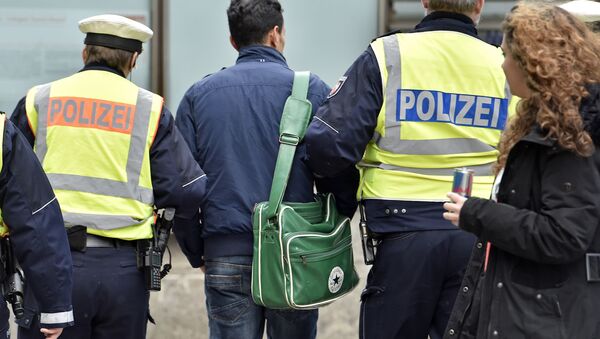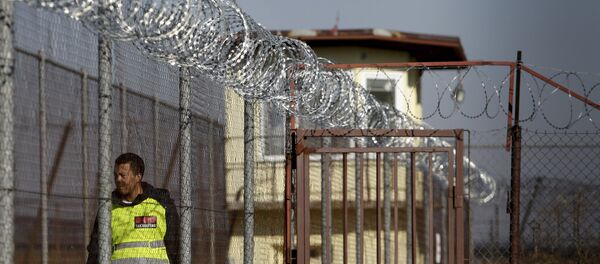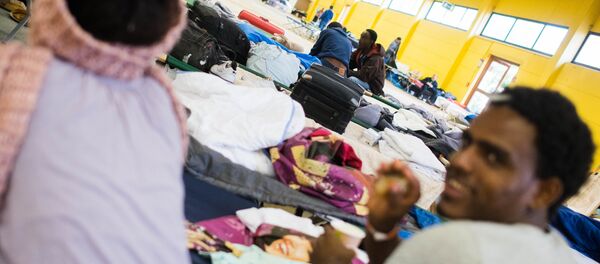There was a 14.3 percent increase in murder and manslaughter, a 12.7 percent increase in rape and sexual assault and a 9.9 percent increase in serious assault.
There were almost 250,000 cases of migrants entering the country illegally, a 61.4 percent increase in comparison with the previous year. There was a 14.8 percent increase in weapons offenses and a 7.1 percent increase in drug offenses.
According to the statistics, illegal immigrants, refugees and asylum applicants were suspected to be responsible for 174,438 crimes, an increase of 52.7 percent in comparison with the previous year.
The number of German crime suspects fell by 3.4 percent to 1,406,184.
Interior Minister Thomas de Maiziere said that the increase in migrant crime was "unacceptable" and promised to expel illegal immigrants who commit criminal acts.
"This is nothing to gloss over," the minister said. "Those who commit serious crimes have forfeited their right to residency."
He told journalists that "really vulnerable" refugees such as Syrians have committed less crime than the average, while illegal migrants from North Africa and Eastern Europe are responsible for a greater proportion. Most often, the perpetrators were young men, a group overrepresented among migrants and asylum seekers.
In the German population as a whole, the proportion of young males between 14 and 30 is nine percent. Among refugees and migrants as a whole, this proportion rises to 39 percent. Among North Africans, the proportion is 61 percent.
"With regard to North Africans, 61 percent are young men," which explains the rise in violent crime including rape and murder.
"With this kind of (demographic) composition, you can't expect anything else," Pfeiffer explained.
These migrants in Germany are "isolated young men" without their families, who otherwise might be able to exert some control over them.
While war refugees from Iraq, Syria and Afghanistan are able to claim asylum in Germany, economic migrants from countries in North Africa or Eastern Europe that are not at war are being told to return home.
These migrants are being told, "You are the wrong ones, we really didn't want you, we're sorry you misunderstood the open borders. You can't stay in Germany, you have to go back."
After a long and dangerous journey to Germany, many of these illegal immigrants are angry and frustrated that they can't stay there.
They commit an "extremely high proportion of violent crime," and are responsible for offenses such as the New Year's Eve sex attacks in Cologne, Pfeiffer said.
"When Max is attacked by Moritz, the likelihood of reporting is 13.4 percent. When Max is attacked by Mehmed, the likelihood is 27 percent."
"In every country in the world, (crimes by) foreigners are more often reported than those of local people," he added.
If the perpetrator and victim are of the same nationality and speak the same language, they might be able to resolve a fight or issue of criminal damage without involving the police.
"But if it's a Syrian who doesn't speak a word of German, then of course the Bavarian will report him or he won't get any damages," Pfeiffer explained.
According to a study of 20,000 migrants in Germany by the Criminological Research Institute of Lower Saxony, the same principle can be seen among the migrants themselves.
"If it's Mehmed against Messud, charges will be pressed in ten percent of cases. If it's Mehmed against Igor, the rate is 28 percent."
Never miss a story again — sign up to our Telegram channel and we'll keep you up to speed!





